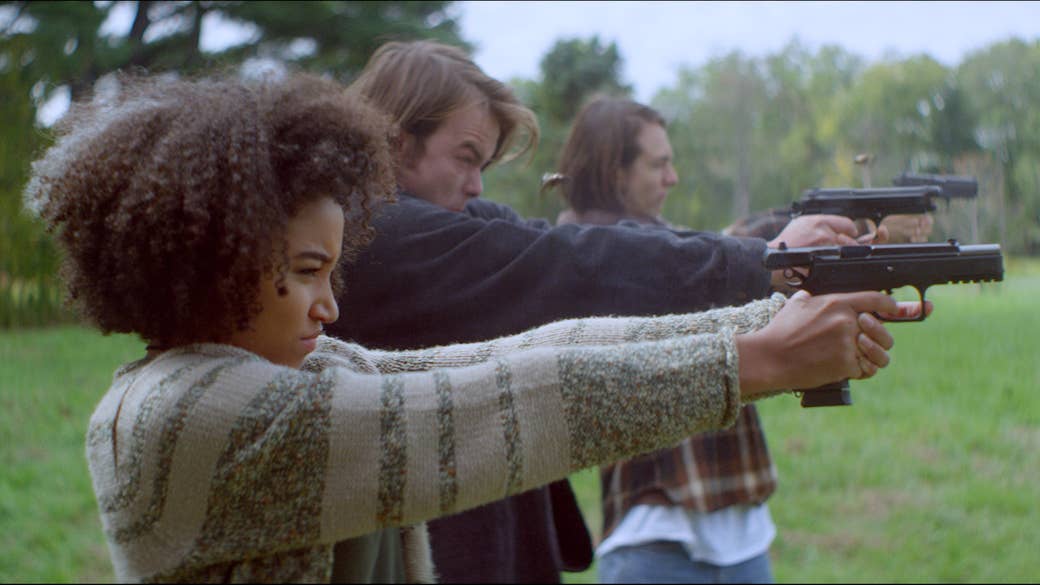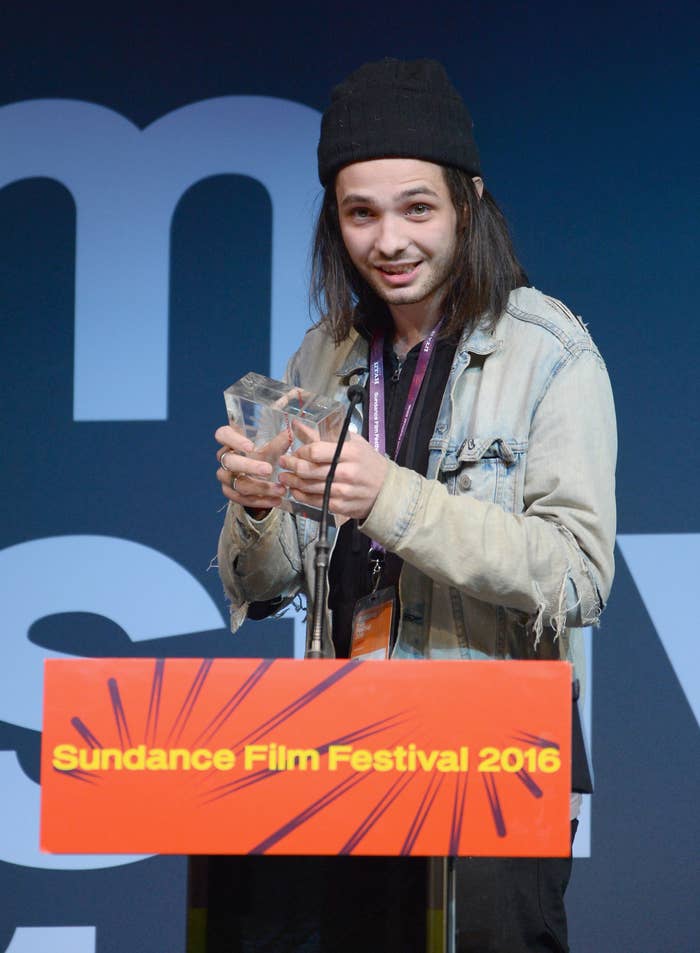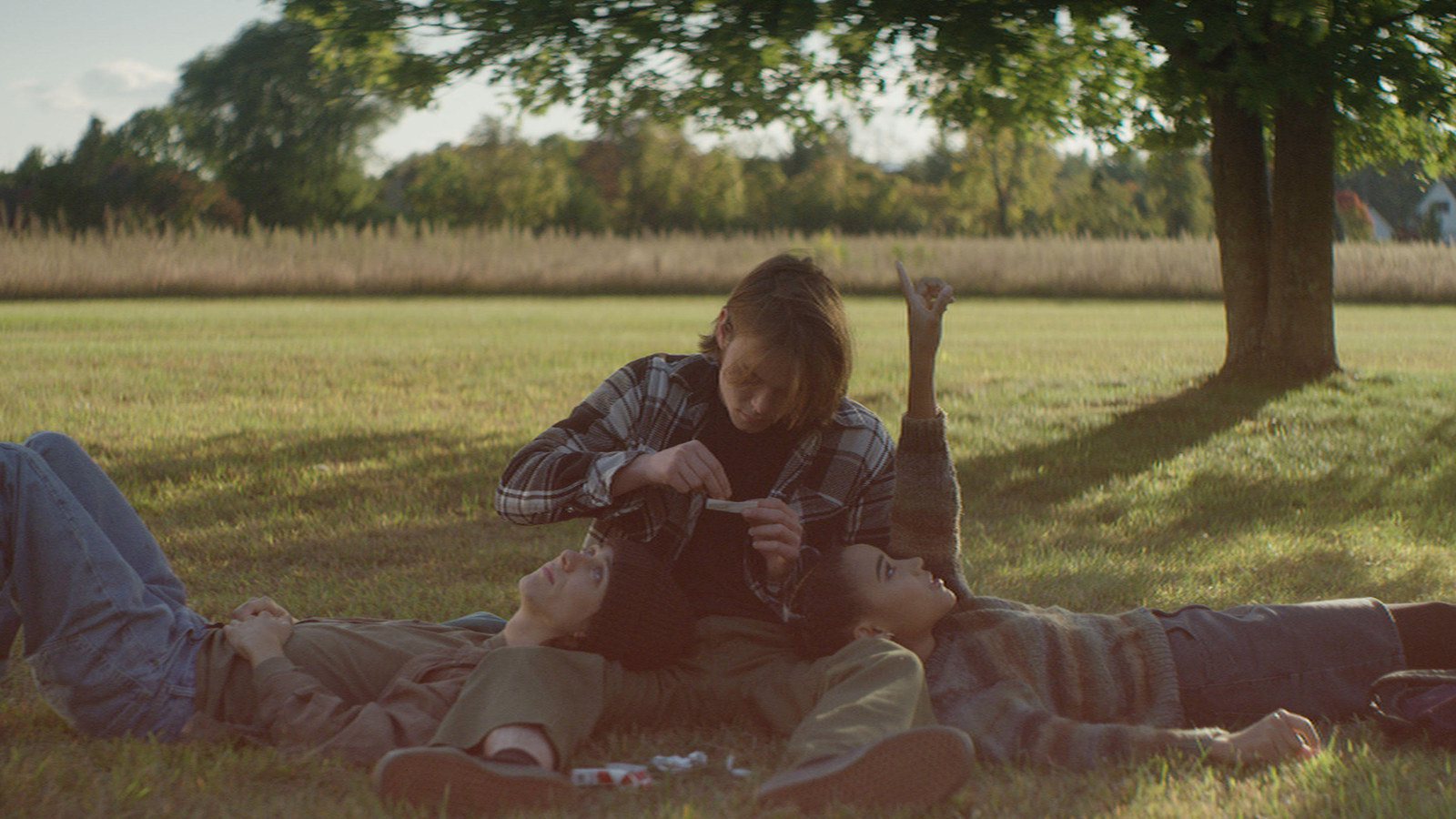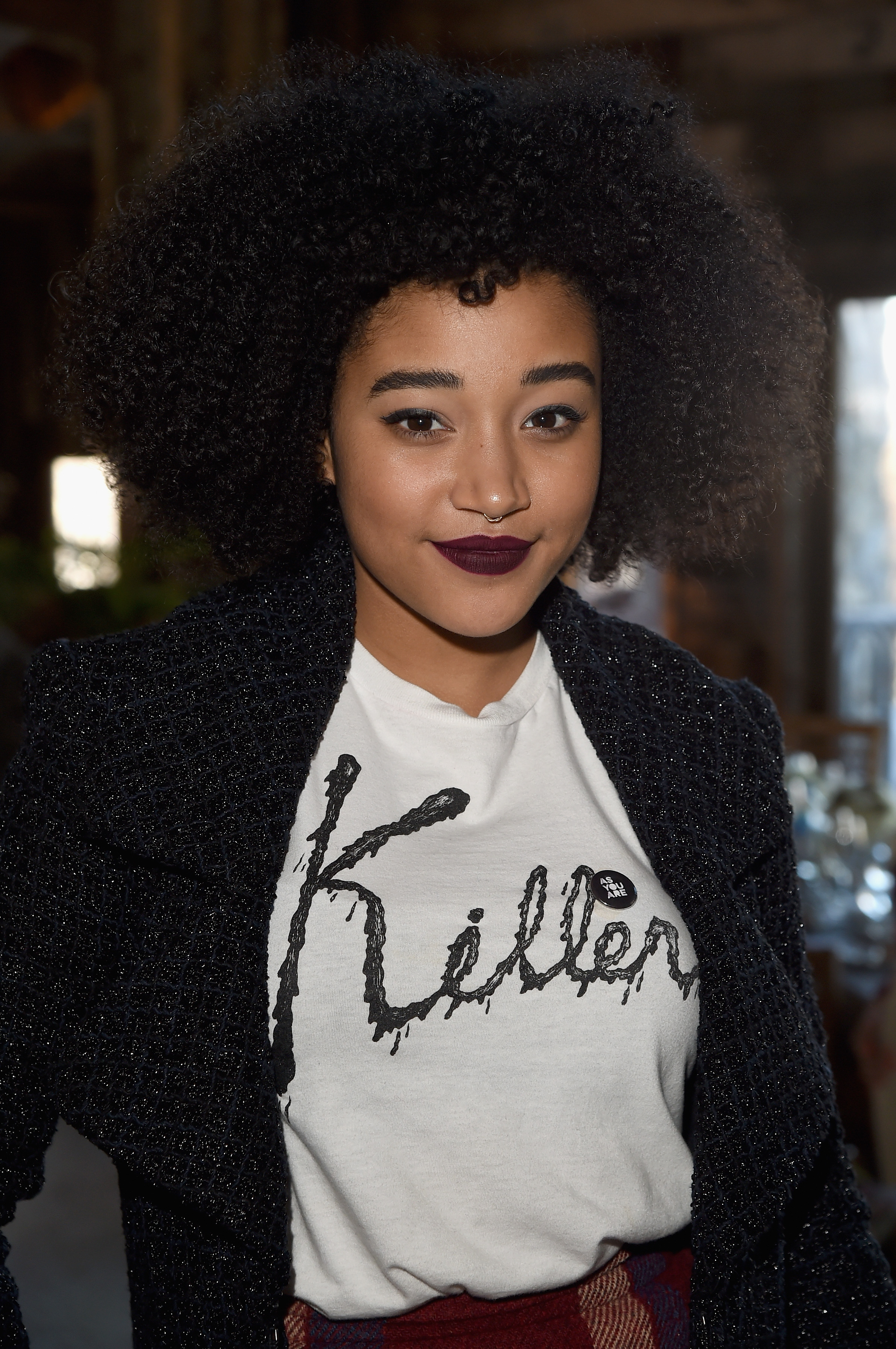
Miles Joris-Peyrafitte's As You Are is set during 1994's grunge apex, but its sexual politics are firmly 2016.
It's the story of a trio of sexually fluid teenage friends. Jack (Owen Campbell) is sensitive and introverted, and soon falls for the more charismatic, careless Mark (Charlie Heaton), the son of his mother's new boyfriend (Mary Stuart Masterson and Scott Cohen, respectively). Amandla Stenberg (Rue from The Hunger Games) plays Sarah, Jack and Mark's rational, but slightly worshipful friend, whose low-key romantic affections seem equally directed toward both boys.

Joris-Peyrafitte, who is 23 years old, directed As You Are; co-wrote it with his childhood best friend, Madison Harrison; co-wrote its music with Patrick Higgins; and has a small part in it too. The movie began as Joris-Peyrafitte's senior thesis project (with another title — As a Friend — grabbed from Nirvana's song "Come As You Are") at Bard College, from which he graduated in 2014. And after he showed the short to producer Brent Stiefel, it grew into a feature. One on a particularly compressed, stressful timetable for the Sundance Film Festival: Joris-Peyrafitte and Harrison wrote As You Are's screenplay in late fall 2014, the movie finished filming in early October of 2015, and was accepted to Sundance the next month, where it went on to win a special jury award.
As You Are, which is seeking distribution, is about thwarted, possibly misplaced, love, irresponsible parenting, and unfortunate access to guns. It all turns out to be a deadly combination: The movie has a crime backdrop, one we learn about through police interrogation scenes featuring all but one of the main characters who then reveal what happened in flashback.
Despite the same-sex love story that in part drives its action, As You Are threads what may be an increasingly meaningful distinction between a gay/LGBT movie and a queer one. "I don't think of the characters as being straight or gay or anything like that," Joris-Peyrafitte said during an interview in Park City, Utah, the day after As You Are premiered to strong reviews. "I think what we wanted to do is present these characters free of judgment, and to present their circumstances free of judgment."
Campbell, whose Jack typifies the adolescent yearning that can go horribly awry if it's squelched or, worse, vilified, echoed Joris-Peyrafitte's characterization of the film's (lack of) identity politics. "There are people who identify as gay, and that's a different thing than these kids," Campbell said. "They don't identify as anything but each other, and these feelings aren't binary for them."

Regardless of the characters' feelings, or Joris-Peyrafitte's aims, he is aware that As You Are's violent endpoint places it squarely in a legacy of LGBT film history that has often punished its characters. "How it fits into the larger conversation about that, I don't really have a great answer for it," Joris-Peyrafitte said. "Because it's true that there's this weird trope that started emerging, and I feel pretty uncomfortable with it. I genuinely don't think that that's what this movie is doing, because a part of where that comes from is judgment, and a part of where that comes from is labeling. And that's the opposite of what we wanted to do. This isn't a story about a kid who's gay who kills someone who isn't. Or a kid who's straight who kills someone who's gay. Or a kid who kills himself. It's about love and friendship and being pushed to a place where you don't know what to do."
Joris-Peyrafitte would also prefer not being labeled himself. "I wish I could own, and call myself, queer — in a way of just not aligning myself in any way," he said. "But I also think that's not my right to a certain degree, because I'm a man who has relationships with women. And I haven't gone through that struggle in a way that people do who come out on the other side. It's not my title to take, and it's not my word to claim."
During a different time in both American politics and pop culture, Masterson, now 49, who plays Jack's downtrodden mom, starred in 1991's Fried Green Tomatoes, a lesbian love story that — unlike As You Are — actively hid, rather than complicated, its queer backbone. And looking back on that movie shows how far we've come: According to Masterson, the romantic story between Idgie, whom she played, and Ruth (Mary-Louise Parker) was "redacted," and the filmmakers edited out scenes that would have made it entirely clear that they were a couple. "We were clearly playing that," Masterson said. But in the final cut, "it was just about friendship," she said. "I think they might have been afraid."
Twenty-two years ago, when As You Are is set, Jack, Mark, and Sarah would have had fewer resources, and certainly almost no role models, to help shape their future selves. "They don't really know what they're doing," Campbell said. "They're just trying everything to make themselves feel whole, and when the universe keeps stepping in the way of that, they have to try something new. They just keep trying everything until, in the end, they try something with tragic results. They're just trying to get out of this crushing environment, which won't allow them to develop."

Stenberg — who at 17 is known on the internet as a powerful, political voice — said she was drawn to As You Are for its nonjudgmental approach, which she found "refreshing." "Aside from the tragedy, there are really beautiful parts of the movie that portray love in such a pure way," Stenberg said. "And hopefully perpetuates the message that love is not gendered, and sexuality is not gendered either."
Earlier this year, Stenberg came out as bisexual in the most modern of ways: on Teen Vogue's Snapchat channel. When asked about it, she smiled. "I'm only smiling because I keep getting asked about it," she said. "And it's kind of funny to me, because I didn't think of it myself as, like, coming out. I was talking about myself and my identity, and that was a component of a larger thing that I was saying. But of course the way that gets picked up is different."
Stenberg certainly understands why that happened — that coming out, at least for now, is still an important act, and it continues to be notable when well-known people do it. As a teenager in 2016, she sees both sides. "For some people, identifying with a community is really empowering; for other people, they don't want to put a label on themselves," she said. "I'm honestly kind of stuck in the middle. Sometimes I refer to myself as bisexual, sometimes I don't want to refer to myself as anything."
Stenberg, above all, feels that a multiplicity of representation is what gets her excited for a different sort of future. "I kind of saw myself in the relationship between Jack and Mark, and them exploring their sexual fluidity."
"I hope we get to the stage where no one really has to come out, where sexuality isn't assumed, and gender isn't assumed as well," Stenberg said. "So there doesn't have to be a somewhat painful process for some people where they have to feel very vulnerable.”

